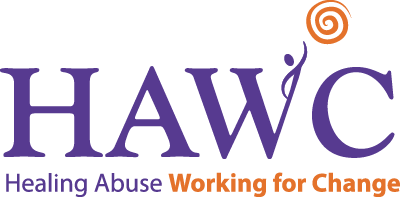Over the past few months, several high-profile sexual harassment and sexual assault cases involving big names such as Hollywood producer Harvey Weinstein, Fox News star Bill O’Reilly, actor Kevin Spacey, and comedian Louis C.K. have filled the news.
The prevalence of these stories in the news aims not only to implicate the perpetrators of this systematic harassment, but also start a larger conversation about sexual violence.
HAWC stands in strong support of anyone recovering from sexual harassment and assault. While these media stories contribute to public awareness, they may also be triggering for anyone experiencing or healing from trauma. Be gentle with yourself: log-out of social media when necessary, walk away from triggering conversations, and know it is okay if you are not prepared to share your experience. HAWC is proud to stand by you on every step of the healing process. For more support, you are welcome to call our 24-Hour Hotline at 1-800-547-1649, reach out to the YWCA Northeastern Massachusetts (formerly YWCA North Shore Rape Crisis Center) at 800-922-8772, or call the National Sexual Assault Telephone Hotline (RAINN) at 800-656-HOPE.
In addition to assisting survivors on their path towards healing, HAWC hopes to use this as an opportunity to more specifically discuss sexual harassment in the workplace.
There are two main types of sexual harassment, according to the courts:
- Quid pro quo: Promising a job in return for a sexual favor (or taking away a job in response to sexual rejection).
- Hostile workplace: Any workplace that features continual or repeated sexual jokes and comments about a person’s physical appearance or genitalia, requests for sexual favors, inappropriate touching, publishing or forwarding sexually graphic photos or literature, or any other sexual behaviors that impact day-to-day life.
In many cases, sexual harassment isn’t about sex, it’s about gaining power and control over a survivor. If you experience sexual harassment, there are steps you can take that may better inform your decision to seek justice and safety.
If you’re an employee experiencing sexual harassment…
- Collect evidence.
From the moment you suspect harassment, begin documenting your experiences. If you’re offered a job or favors because you acquiesced to a harasser — or if you have been punished professionally because you didn’t — write down the date, time, and place when these offers or threats were made. Watch carefully and take notes of inappropriate conduct or comments directed towards you or others, noting the date, time, and place. Collect texts, emails, or cards sent by the harasser by screenshotting and printing them, or keeping copies. Keep all of these notes in a purse or briefcase rather than a company computer or desk. - Do your homework.
To many, the law’s narrow definition of sexual harassment may come as a surprise. Remember: sexual harassment is unwelcome verbal and physical conduct that is severe (one particularly extreme instance of offense) or pervasive (a pattern of offensive remarks and behaviors).Look at your company’s anti-harassment policy, normally located on the company’s website or in the handbook, or consider asking someone in the Human Resources department for a copy.
- Report it.
After reading your company’s anti-harassment policy, follow the official steps for submitting a harassment complaint. If there are no steps offered, talk to a supervisor. Reporting to a supervisor is a necessary step towards taking this case to the courts, as the law requires you to give your employer an opportunity to remedy the issue first.Be sure that you maintain written evidence of the complaint. If you send a verbal complaint, send an email confirmation afterwards. From here, the employer is only responsible for making the harassment stop. In the event that the harassment continues even after a complaint is filed, the entire company is liable for a lawsuit.
Finally, if you feel uncomfortable reporting harassment to a supervisor, know that the law protects you from retaliation or punishment for making a complaint. That being said, during any investigations or lawsuits, it is your responsibility to perform work dutifully. If you are fired or punished because you are violating your company’s policies in other areas, this protection from retaliation doesn’t apply.
- Watch the time.
If your employer does not successfully end the harassment after you have filed a complaint, you have between 180 and 300 days from the date of the reported incident to file an official complaint with the Equal Employment Opportunity Commission (EEOC) depending on your state. - Get out.
While reporting sexual harassment can prove to not only protect yourself but also all future employees, it’s important to recognize that you are not trapped inside this potentially hostile work environment. If your employer isn’t taking your claims seriously or harassers haven’t altered their behavior, consider the possibility of finding a job elsewhere. This does not mean you are letting your harasser win. Rather, it means you are taking the steps necessary to protect your physical and mental health. Additionally, in many states, if you leave a job as the result of harassment, you can qualify for unemployment benefits.
Fighting sexual harassment in the workplace does not need to be only retroactive! HAWC reminds business owners that maintaining workplace integrity can only serve to benefit you: even if you are not a harasser, you too can be held liable for the harassment of an employee. In addition, if your employees feel unsafe or unhappy, their performance will dwindle. So…
If you’re an employer…
- Be prepared. Create robust policies against sexual harassment that involve full investigations and a concrete set of actions taken when a complaint is filed. Regularly train employees on how to recognize harassment and show employees how to make complaints anonymously.
- Take action. Take appropriate routes of discipline if and when an allegation is made. If a complaint is made unofficially — by word of mouth or the rumor mill — go to the necessary lengths to investigate the accuracy of the reports and act accordingly.
- Lead by example. Maintain a board and senior management team that represent and routinely embrace equality and respect in the workplace.
As more and more survivors of sexual harassment and sexual assault come forward, the systematic pervasiveness of this issue becomes apparent. And it’s not over: many predict that this is only the tip of the iceberg. If you or someone you know has experienced sexual harassment or sexual assault, take time to care for yourself in the coming weeks, and remember that HAWC is always available to support you!


